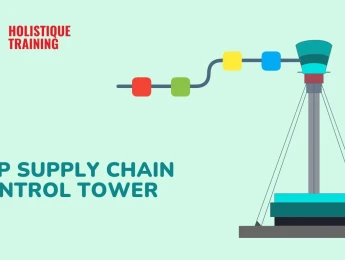Management accounting in supply chains covers planning, monitoring, management, and information for manufacturing and logistics processes throughout your value chain. Supply chain management accounting aims to optimise these processes and facilitate a responsive supply chain. Your management accounting practices need to support your organisation's competitiveness and long-term sustainability.
This course provides a foundational look at the principles of supply chain management accounting, implementation of financial KPIs to monitor operations, and how to develop development goals that align with your Environmental, Social, and Governance (ESG) framework
Upon completion of this course, participants will be able to:
- Understand the key principles of supply chain management accounting.
- Align your corporate goals and objectives to operation and planning cycles.
- Develop suitable KPIs to assess operational and senior staff performance.
- Mitigate operational risks and understand the skills and competencies required to run operations effectively.
This course is intended for:
- Internal Auditors and other auditing professionals.
- Corporate governance directors.
- Officials responsible for corporate compliance.
- Finance and accounting professionals in the public sector.
- Anyone seeking to develop their understanding of supply chain management accounting.
This course uses a variety of adult learning styles to aid full understanding and comprehension. Participants will review case studies to highlight key areas of importance and possible areas for faults. They will be supplied with the best tools required for learning exercises to improve their skills. Participants will analyse the examples to thoroughly understand how these skills, techniques and methods apply in the workplace.
Day 5 of each course is reserved for a Q&A session, which may occur off-site. For 10-day courses, this also applies to day 10
Section 1: Inventory Management and Cost Control
- Define the two types of accounting: managerial accounting and cost accounting.
- Describe inventory management.
- Link inventory to financial position.
- Describe cost structure: fixed and variable costs and break-even analysis.
- Define a cost centre and inventory-driven costs.
Section 2: Value-Based Management and Key Performance Indicators (KPIs)
- Describe corporate value-based management.
- Identify the essentials of effective KPIs.
- Compare Return on Equity (ROE) and Return on Invested Capital (ROIC).
- Identify key supply chain management KPIs.
- Analyse the supply chain capabilities model.
Section 3: Understand the Cash Conversion Cycle (CCC)
- Describe the CCC and how it is calculated.
- Compare and contrast the operation cycle and the cash cycle.
- Examine the core challenges of CCC.
- Identify essential steps to developing an effective CCC.
- Discuss strategies to accelerate the speed of CCC cashing.
- Explore the relationships between production and purchasing, sales, and inventory management.
Section 4: Advanced Tools for Management Accounting
- Describe the balanced scorecard (BSC) performance metric.
- Review BSC case studies.
- Outline the theory of Six Sigma using case studies.
- Detail the stages and importance of the Plan-Do-Check-Act problem-solving method.
- Visualise the relationship between management and autonomy.
- Describe IT solutions that improve efficacy.
Section 5: Environmental, Social, and Governance (ESG) Frameworks
- Define the ESG framework.
- Identify your strategic development goals.
- List the steps and focus of integrated reporting.
- Examine risk management.
- Describe challenges in managing environmental issues.
Upon successful completion of this training course, delegates will be awarded a Holistique Training Certificate of Completion. For those who attend and complete the online training course, a Holistique Training e-Certificate will be provided.
Holistique Training Certificates are accredited by the British Assessment Council (BAC) and The CPD Certification Service (CPD), and are certified under ISO 9001, ISO 21001, and ISO 29993 standards.
CPD credits for this course are granted by our Certificates and will be reflected on the Holistique Training Certificate of Completion. In accordance with the standards of The CPD Certification Service, one CPD credit is awarded per hour of course attendance. A maximum of 50 CPD credits can be claimed for any single course we currently offer.
- Course Code PO1-122
- Course Format Classroom, Online,
- Duration 5 days














